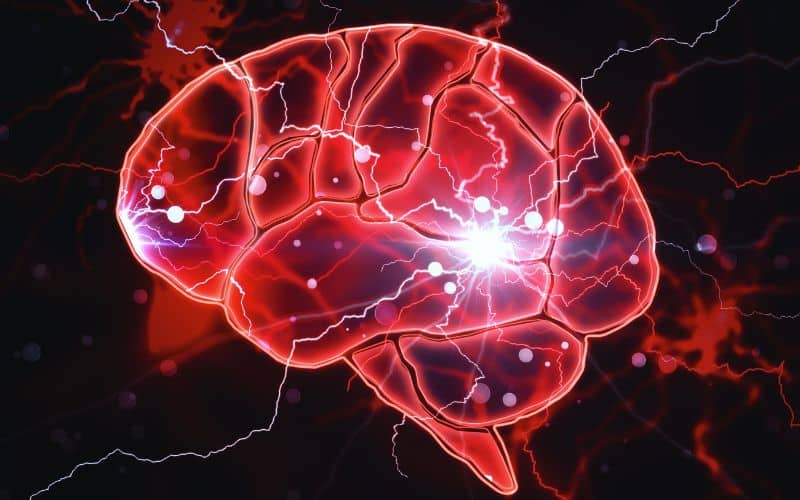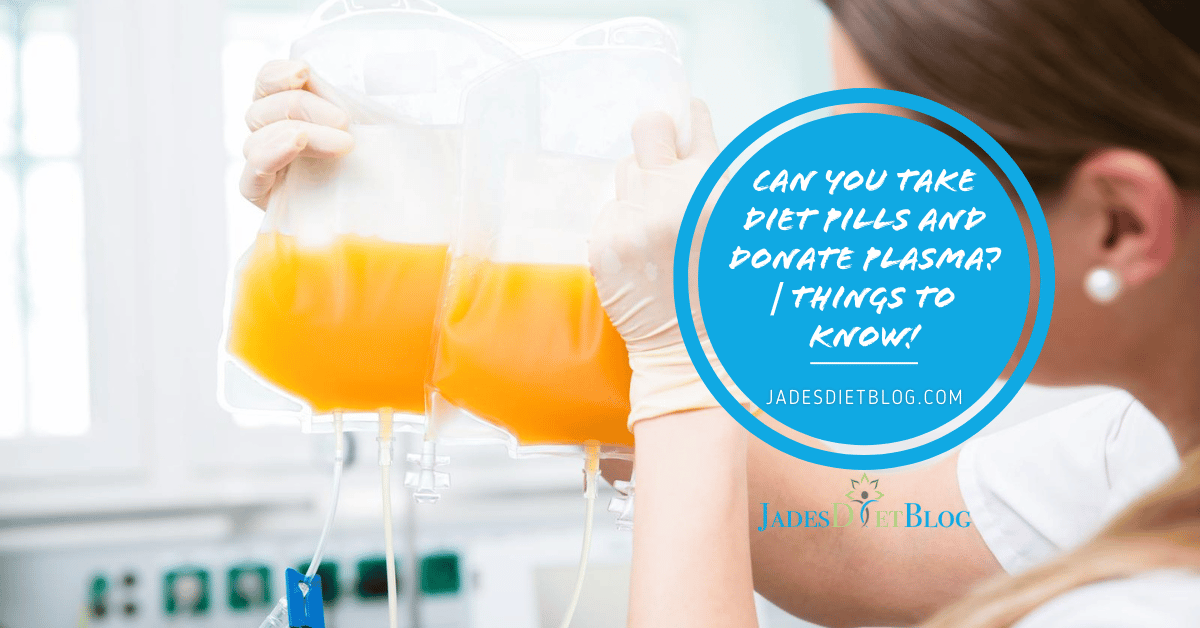Fat is an essential macronutrient that our body needs to function properly. Despite its bad reputation, fat plays a crucial role in maintaining good health. It is important to understand that not all fats are created equal, and some types of fats are actually beneficial for our body.
One reason why we need fat in our diet is for energy. Fat is a concentrated source of energy, providing more than twice the amount of energy per gram as carbohydrates or proteins. Our body needs a certain amount of fat to fuel daily activities, and to support growth and development in children and adolescents. Additionally, fat helps us feel full and satisfied after a meal, which can prevent overeating and promote weight management.
Another reason why we need fat in our diet is for the absorption of certain vitamins. Vitamins A, D, E, and K are fat-soluble vitamins, which means they require fat to be properly absorbed and utilized by the body. Without enough fat in our diet, we may not be able to absorb these important vitamins, which can lead to deficiencies and health problems.
Contents
The Role of Fat in the Human Body
Fat is an essential nutrient that plays a crucial role in maintaining good health. It is a macronutrient that provides energy to the body and helps in the absorption of vitamins. Fat also helps to insulate and protect the vital organs of the body and is a component of cell membranes.
There are two types of dietary fats: saturated and unsaturated. Saturated fats are usually solid at room temperature and are found in animal products like meat, butter, and cheese. Unsaturated fats are usually liquid at room temperature and are found in plant-based foods like nuts, seeds, and oils.
Fat is a source of energy for the body. It provides more than twice the amount of energy per gram than carbohydrates or proteins. This means that fat is an important component of a healthy diet, especially for athletes and people who perform high-intensity activities.
Fat also helps to absorb fat-soluble vitamins like A, D, E, and K. These vitamins are important for maintaining good health, and without fat, the body would not be able to absorb them properly.
In addition, fat helps to insulate and protect the vital organs of the body. It acts as a cushion, protecting the organs from damage. Fat is also a component of cell membranes, which are essential for the proper functioning of cells.
It is important to note that not all fats are created equal. Saturated and trans fats can increase the risk of heart disease and should be limited in the diet. On the other hand, unsaturated fats, especially monounsaturated and polyunsaturated fats, can have health benefits when consumed in moderation.
Overall, fat is an essential nutrient that plays a crucial role in maintaining good health. It provides energy to the body, helps to absorb vitamins, and protects vital organs. It is important to consume a balanced diet that includes healthy sources of fat to ensure optimal health.
Essential Fatty Acids
Fatty acids are essential nutrients that our body needs to function properly. These fatty acids cannot be produced by our body and must be obtained through our diet. There are two types of essential fatty acids: Omega-3 fatty acids and Omega-6 fatty acids.
Omega-3 Fatty Acids

Omega-3 fatty acids are a type of polyunsaturated fat that play a crucial role in our body. They are important for brain function, heart health, and reducing inflammation. There are three types of omega-3 fatty acids: alpha-linolenic acid (ALA), eicosapentaenoic acid (EPA), and docosahexaenoic acid (DHA).
ALA is found in plant-based sources such as flaxseeds, chia seeds, and walnuts. EPA and DHA are found in fatty fish such as salmon, mackerel, and sardines. It is recommended to consume at least two servings of fatty fish per week to meet the daily requirement of omega-3 fatty acids.
Omega-6 Fatty Acids
Omega-6 fatty acids are another type of polyunsaturated fat that are also essential for our body. They are important for brain function, growth, and development. However, excessive intake of omega-6 fatty acids can lead to inflammation and increase the risk of chronic diseases.
Omega-6 fatty acids are found in vegetable oils such as corn oil, soybean oil, and sunflower oil. It is important to maintain a balance between omega-3 and omega-6 fatty acids in our diet to promote overall health.
In conclusion, essential fatty acids play a crucial role in our body and must be obtained through our diet. Omega-3 and omega-6 fatty acids are two types of essential fatty acids that are important for our health. It is recommended to consume a variety of food sources to meet the daily requirement of essential fatty acids.
Fat-Soluble Vitamins
Fat-soluble vitamins are essential nutrients that our body needs to function properly. Unlike water-soluble vitamins that dissolve in water, fat-soluble vitamins dissolve in fat. This means that they require fat to be properly absorbed and stored in our body. Fat-soluble vitamins include Vitamin A, Vitamin D, Vitamin E, and Vitamin K.
Vitamin A
Vitamin A is important for maintaining good vision, healthy skin, and a strong immune system. It is found in animal products such as liver, fish, and dairy. Plant-based sources of Vitamin A include carrots, sweet potatoes, and spinach. Consuming too much Vitamin A can be toxic, so it is important to not exceed the recommended daily intake.
Vitamin D
Vitamin D is essential for strong bones and teeth, as it helps the body absorb calcium. It is also important for immune system function. Vitamin D can be obtained from sunlight, as well as from foods such as fatty fish, egg yolks, and fortified milk. Many people do not get enough Vitamin D, especially those who live in areas with limited sunlight or have a diet lacking in Vitamin D-rich foods.
Vitamin E
Vitamin E is an antioxidant that helps protect the body's cells from damage. It is found in nuts, seeds, and vegetable oils. Vitamin E deficiency is rare, but can lead to nerve damage and other health problems.
Vitamin K
Vitamin K is important for blood clotting and bone health. It is found in leafy green vegetables, such as kale and spinach, as well as in dairy products and meat. People taking blood thinning medications should be careful not to consume too much Vitamin K, as it can interfere with the medication's effectiveness.
In conclusion, fat-soluble vitamins are important nutrients that our body needs to function properly. It is important to consume a balanced diet that includes sources of these vitamins, while also being mindful of potential toxicity from excessive consumption.
Energy Source
Fat is an excellent source of energy for the body. According to the American Heart Association, fat is a nutrient that we need in our diet. It is a concentrated source of energy that provides more than twice the amount of energy as carbohydrates and proteins. One gram of fat contains nine calories, while one gram of carbohydrates or proteins contains only four calories.
The body stores fat as adipose tissue, which can be broken down and used for energy when needed. During exercise, the body uses a combination of carbohydrates and fats as fuel. The type of exercise and its intensity determines the proportion of carbohydrates and fats used for energy.
For low-intensity exercises, such as walking or jogging, the body primarily uses fat as the energy source. This is because the body can easily access and break down stored fat for energy. However, during high-intensity exercises, such as sprinting or weightlifting, the body relies more on carbohydrates for energy as they can be broken down faster than fats.
It is important to note that consuming too much fat can lead to weight gain and other health problems. However, consuming the right amount of fat can provide the body with the energy it needs to function properly. It is recommended that adults get 20-35% of their daily calories from fat, with a focus on consuming healthy fats such as monounsaturated and polyunsaturated fats.
In summary, fat is an essential nutrient that provides the body with a concentrated source of energy. It is important to consume the right amount of fat to support the body's energy needs while maintaining a healthy weight.
Cell Function and Development

Fats play a crucial role in the development and function of cells in the body. They are essential for the growth and maintenance of healthy cells, especially in the brain and nervous system.
One of the most important functions of fats in the body is to provide energy to the cells. Fats are a concentrated source of energy, providing more than twice the amount of energy per gram than carbohydrates or proteins. This energy is essential for the proper functioning of cells, especially those in the brain and nervous system, which require a constant supply of energy to carry out their functions.
In addition to providing energy, fats are also important for the development of cell membranes. Cell membranes are composed of a double layer of lipids, which are primarily made up of fats. These lipids help to maintain the integrity of the cell membrane, which is essential for the proper functioning of the cell.
Fats also play a crucial role in the development and function of the brain and nervous system. The brain is composed of more than 60% fat, and a significant portion of this fat is made up of omega-3 fatty acids. These fatty acids are essential for the proper development and functioning of the brain, including memory, learning, and mood regulation.
To summarize, fats are essential for the growth and maintenance of healthy cells, especially in the brain and nervous system. They provide energy to the cells, are important for the development of cell membranes, and play a crucial role in the development and function of the brain and nervous system.
Hormone Production
Fat is an essential nutrient that plays a vital role in hormone production. Hormones are chemical messengers that regulate various bodily functions, including metabolism, growth, mood, and sexual function. Without adequate fat intake, our bodies cannot produce hormones properly, leading to various health problems.
Hormones are produced from cholesterol, a type of fat found in animal products. Cholesterol is a precursor to steroid hormones such as testosterone, estrogen, and progesterone. These hormones are essential for reproductive health, bone density, muscle mass, and mood regulation.
In addition to cholesterol, certain types of fats are also necessary for hormone production. For example, omega-3 and omega-6 fatty acids are precursors to prostaglandins, which are hormone-like substances that regulate inflammation, blood clotting, and blood pressure.
Furthermore, fat-soluble vitamins such as vitamin D, vitamin E, and vitamin K are essential for hormone production and function. These vitamins are found in foods that contain fat, such as nuts, seeds, and fatty fish.
It's important to note that not all fats are created equal. Trans fats and saturated fats, found in processed foods and animal products, can interfere with hormone production and increase the risk of heart disease and other health problems. On the other hand, monounsaturated and polyunsaturated fats, found in foods such as olive oil, avocados, and nuts, are beneficial for hormone production and overall health.
In conclusion, fat is an essential nutrient that plays a critical role in hormone production. By consuming a balanced diet that includes healthy fats, we can support our body's natural hormone production and maintain optimal health.
Brain Health
Fat plays a crucial role in maintaining brain health. The human brain is primarily composed of fat, and a significant portion of that fat is omega-3 fatty acids, which are essential for brain development and function. Omega-3 fatty acids are found in high concentrations in fatty fish, such as salmon and tuna, as well as in nuts and seeds like flaxseed and walnuts.
Studies have shown that diets rich in omega-3 fatty acids are associated with improved cognitive function and a reduced risk of cognitive decline in older adults. Additionally, omega-3 fatty acids have been shown to have anti-inflammatory properties, which may help protect against neurodegenerative diseases such as Alzheimer's and Parkinson's.
While omega-3 fatty acids are important for brain health, it's also essential to consume a balanced ratio of omega-3 and omega-6 fatty acids. Omega-6 fatty acids are found in vegetable oils, such as corn and soybean oil, and are necessary for brain development and function. However, a diet high in omega-6 fatty acids and low in omega-3 fatty acids has been linked to increased inflammation and a higher risk of chronic diseases.
Consuming a diet that includes a variety of healthy fats, including omega-3 and omega-6 fatty acids, is crucial for maintaining optimal brain health. Incorporating foods such as fatty fish, nuts, seeds, and vegetable oils into your diet can help ensure that you are getting the necessary amount of healthy fats to support brain function.
Fat and Flavor

Fat plays a crucial role in making our food taste delicious. It gives a rich and satisfying mouthfeel, and it is a carrier of flavor. Fat-soluble vitamins, such as vitamin A, D, E, and K, are present in fatty foods, and they are essential for various body functions.
Fats are a key component of many dishes, including baked goods, sauces, and dressings. The texture and flavor of these foods are significantly influenced by the type and amount of fat used. For example, butter or lard can add a rich and buttery flavor to a dish, while olive oil can add a fruity and nutty flavor.
In addition to flavor, fat also helps to balance the overall taste of a dish. It can help to reduce bitterness and enhance sweetness. For example, adding a small amount of butter or cream to a tomato sauce can help to reduce its acidity and make it more flavorful.
However, it is important to consume fats in moderation as they are high in calories. Choosing healthy fats, such as monounsaturated and polyunsaturated fats, can provide numerous health benefits, including reducing the risk of heart disease and improving cholesterol levels. It is recommended to limit saturated and trans fats, which can increase the risk of heart disease.
Overall, fat is an essential nutrient that plays a vital role in making our food taste delicious. Choosing the right types and amounts of fat can help to enhance the flavor of our food while also providing numerous health benefits.
Potential Risks of Low-Fat Diets
While low-fat diets have been popular for many years as a weight loss strategy, they can have some potential risks. Here are some of the potential risks of low-fat diets:
Nutrient Deficiencies
One of the biggest risks of a low-fat diet is nutrient deficiencies. When you cut out fat from your diet, you may also be cutting out important vitamins and minerals that your body needs. For example, fat-soluble vitamins like vitamin A, D, E, and K are only found in fat-containing foods. If you're not getting enough fat in your diet, you may not be getting enough of these important vitamins.
Hunger and Cravings
Another risk of low-fat diets is increased hunger and cravings. Fat is a satiating nutrient, which means it helps you feel full and satisfied after a meal. When you cut out fat, you may find yourself feeling hungry more often and craving high-carbohydrate foods.
Increased Risk of Heart Disease

While reducing dietary fat can be beneficial for heart health, very low-fat diets may actually increase the risk of heart disease. This is because some types of fat, like monounsaturated and polyunsaturated fats, are actually good for your heart. These fats can help improve cholesterol levels, reduce inflammation, and lower blood pressure.
Reduced Athletic Performance
Fat is an important source of energy for athletes, especially endurance athletes. When you cut out fat from your diet, you may not have enough energy to perform at your best. In addition, fat helps your body absorb and use other important nutrients like vitamins and minerals. Without enough fat in your diet, you may not be able to absorb these nutrients as effectively, which can also impact your athletic performance.
Overall, while low-fat diets can be effective for weight loss, they do come with some potential risks. It's important to make sure you're still getting enough fat in your diet to support your overall health and well-being.
Conclusion
In conclusion, fats are an essential nutrient that our bodies need to function properly. While it is important to consume fats in moderation, it is equally important to ensure that we are consuming the right types of fats.
Saturated and trans fats should be limited in our diets, as they can increase the risk of heart disease and other health problems. On the other hand, monounsaturated and polyunsaturated fats are beneficial for our health, as they can help reduce inflammation, improve cholesterol levels, and support brain function.
It is recommended that adults consume 20-35% of their daily calories from fats, with a focus on consuming more unsaturated fats than saturated fats. Good sources of unsaturated fats include nuts, seeds, avocado, olive oil, and fatty fish like salmon.
Overall, it is important to maintain a balanced diet that includes all the essential nutrients, including fats. By making informed choices about the types of fats we consume, we can support our overall health and well-being.
Frequently Asked Questions
What are the 4 main functions of fats?
Fats have four main functions in the body: they provide energy, help absorb vitamins, cushion and protect organs, and help maintain healthy skin and hair.
What are the different types of fat in the diet and where are they typically found?
There are four main types of fat in the diet: saturated, monounsaturated, polyunsaturated, and trans fats. Saturated fats are typically found in animal products such as meat and dairy, while monounsaturated and polyunsaturated fats are found in plant-based foods such as nuts and seeds. Trans fats are often found in processed foods.
Which type of fat may negatively impact heart health?
Saturated and trans fats are known to negatively impact heart health. It is important to limit your intake of these types of fats and focus on consuming more monounsaturated and polyunsaturated fats.
What happens if you don't get enough fat in your diet?
If you don't get enough fat in your diet, you may experience fatigue, weakness, and difficulty concentrating. Additionally, your body may have trouble absorbing important vitamins and minerals.
What are some examples of fats in nutrition?
Some examples of fats in nutrition include avocados, nuts, seeds, olive oil, fatty fish, and cheese.
What is the importance of fats in our body?
Fats are an essential nutrient in our diet and play a crucial role in maintaining overall health. They provide energy, help absorb vitamins, cushion and protect organs, and help maintain healthy skin and hair. It is important to consume the right types of fats in moderation as part of a balanced diet.






